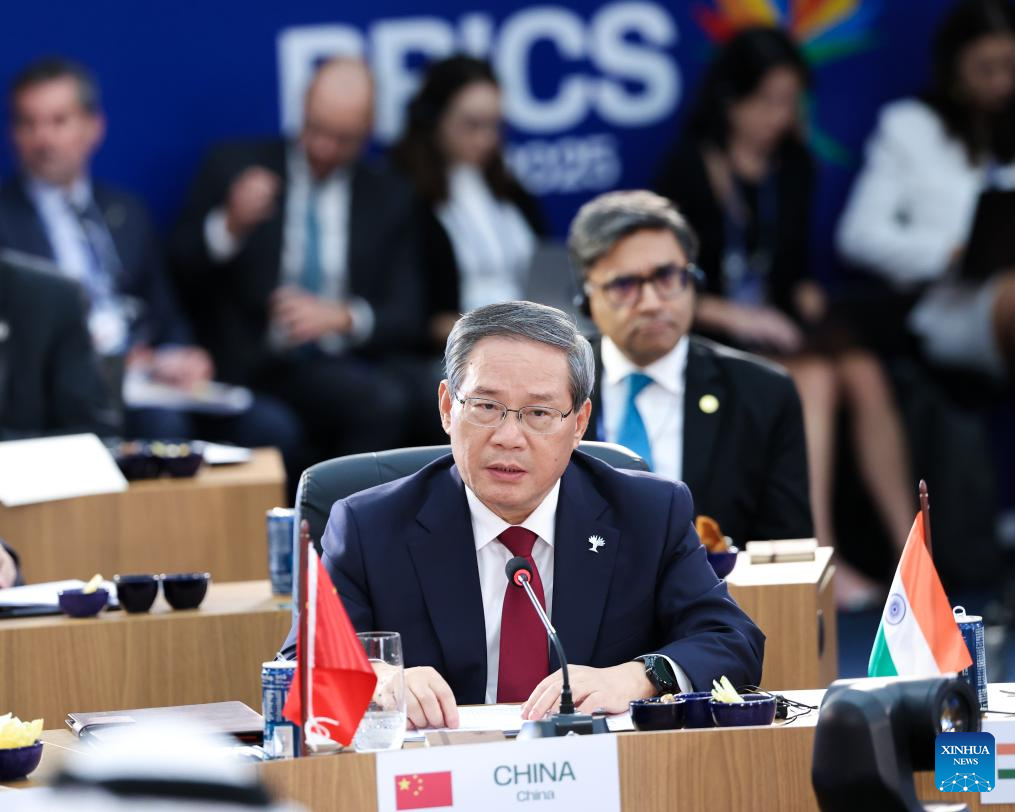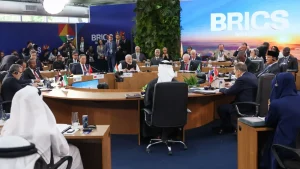New Delhi – Chinese President Xi Jinping’s unprecedented decision to skip the BRICS summit marks a significant shift in international diplomatic priorities. Xi Jinping skips the 17th BRICS Summit 2025 for the first time since assuming power, sending shockwaves through the international community and raising questions about China’s commitment to multilateral engagement with emerging economies.
Historic Absence from BRICS Platform

The fact that Xi Jinping skips BRICS Summit 2025 represents a dramatic departure from his previous engagement with the bloc. Since taking power, Xi Jinping has consistently attended BRICS summits, viewing them as crucial platforms for China’s international influence and economic cooperation. This unprecedented absence signals a fundamental shift in China’s diplomatic priorities and strategic calculations.
The decision that Xi Jinping skips BRICS Summit 2025 reflects deeper strategic considerations beyond mere scheduling conflicts. China’s leadership appears to be recalibrating its international engagement strategy, prioritizing domestic challenges over traditional multilateral commitments. This shift has significant implications for the future of BRICS cooperation and China’s role in global governance.
Domestic Economic Priorities Take Precedence
The primary reason Xi Jinping skips BRICS Summit 2025 centers on China’s urgent need to address mounting economic challenges. The Chinese economy faces significant headwinds, including slowing growth, property sector difficulties, and ongoing trade tensions with various international partners. Xi Jinping’s absence from the Rio de Janeiro summit underscores his administration’s focus on domestic economic stabilization.
Also Read: PM Modi In BRICS Summit 2025 Calls for Terror Sanctions
China’s decision that Xi Jinping skips BRICS Summit 2025 also reflects preparation for a major political meeting expected later this year. These domestic political considerations appear to have taken precedence over international diplomatic engagement, suggesting that China’s leadership views internal stability as more critical than external relationship building at this juncture.
The economic rationale behind why Xi Jinping skips BRICS Summit 2025 reveals China’s strategic priorities. With the country grappling with structural economic challenges, Xi Jinping’s presence is deemed more valuable in Beijing than in Brazil, overseeing policy implementation and economic management strategies.
Premier Li Qiang’s Representation


While Xi Jinping skips BRICS Summit 2025, China has not abandoned its commitment to the bloc entirely. Premier Li Qiang will represent China at the summit, maintaining the country’s engagement with BRICS partners while allowing Xi Jinping to focus on domestic priorities. This diplomatic arrangement demonstrates China’s attempt to balance international obligations with domestic requirements.
The decision that Xi Jinping skips BRICS Summit 2025 while sending Premier Li Qiang should not be interpreted as a downgrade of China’s BRICS commitment, according to diplomatic analysts. Li Qiang’s representation ensures continuity in China’s BRICS engagement while accommodating Xi Jinping’s domestic focus. This arrangement reflects sophisticated diplomatic management during challenging times.
Geopolitical Context and Strategic Calculations
The broader geopolitical context explains why Xi Jinping skips BRICS Summit 2025 at this particular moment. With President Donald Trump’s trade policies potentially weakening US alliances, the pressure on China to seek alternative partnerships through BRICS may have diminished. This reduced urgency could justify Xi Jinping’s absence from the summit.
The fact that Xi Jinping skips BRICS Summit 2025 occurs alongside Russian President Vladimir Putin’s absence creates a unique dynamic. Putin’s virtual participation due to International Criminal Court constraints means that two of BRICS’ most influential leaders are not physically present, potentially reducing the summit’s strategic significance and justifying Xi Jinping’s decision.
Summit Dynamics and Leadership Presence


With Xi Jinping skips BRICS Summit 2025 and Putin attending virtually, the summit’s leadership dynamics have shifted significantly. Prime Minister Narendra Modi and South African President Cyril Ramaphosa emerge as the most prominent leaders physically present, potentially altering the balance of influence within the bloc.
The reality that Xi Jinping skips BRICS Summit 2025 changes the summit’s agenda and outcomes. Without China’s top leadership present, major initiatives requiring high-level political commitment may be postponed or diluted. This absence could impact discussions on crucial issues like de-dollarisation and alternative payment systems.
Economic Agenda and Trade Implications
The timing of why Xi Jinping skips BRICS Summit 2025 coincides with critical trade developments. President Trump’s temporary freeze on new tariffs is set to expire on July 9, creating pressure on BRICS countries to reach trade agreements with the United States. Xi Jinping’s absence during these crucial discussions signals China’s confidence in managing these challenges independently.
Despite the fact that Xi Jinping skips BRICS Summit 2025, China’s economic interests remain central to the summit agenda. Premier Li Qiang is expected to focus on strengthening energy cooperation and promoting China’s digital currency in trade, ensuring that Chinese economic priorities are represented even without Xi Jinping’s presence.
De-dollarisation and Currency Discussions
The decision that Xi Jinping skips BRICS Summit 2025 comes at a time when de-dollarisation discussions are gaining momentum within the bloc. The move to use national currencies instead of the US dollar for trade represents a significant challenge to American economic dominance, yet China’s top leadership absence may limit the depth of these discussions.
While Xi Jinping skips BRICS Summit 2025, the concept of a shared BRICS currency, previously proposed by Brazil’s President Lula, is unlikely to receive serious consideration. Trump’s warnings of heavy tariffs on countries supporting such initiatives may have influenced China’s cautious approach to these discussions.
Future Implications for BRICS Cooperation
The precedent set by Xi Jinping skips BRICS Summit 2025 raises questions about the future of BRICS cooperation and China’s commitment to multilateral engagement. This absence could signal a shift toward more bilateral diplomatic approaches or indicate that China views BRICS as less strategically important than previously assumed.
The long-term impact of Xi Jinping skips BRICS Summit 2025 on China’s international relationships remains to be seen. While Premier Li Qiang’s representation maintains diplomatic continuity, the absence of China’s top leader may be interpreted by some partners as a reduction in China’s commitment to the BRICS framework.
Conclusion and Strategic Assessment
The historic decision that Xi Jinping skips BRICS Summit 2025 reflects China’s current strategic priorities and the complex challenges facing the country’s leadership. While this absence marks a significant departure from previous engagement patterns, it underscores the importance China places on addressing domestic economic challenges and political preparations.
The implications of Xi Jinping skips BRICS Summit 2025 extend beyond the immediate summit outcomes, potentially reshaping the dynamics of emerging economy cooperation and China’s role in global governance. As the international community watches these developments, the balance between domestic priorities and international engagement continues to evolve in response to changing global circumstances.

